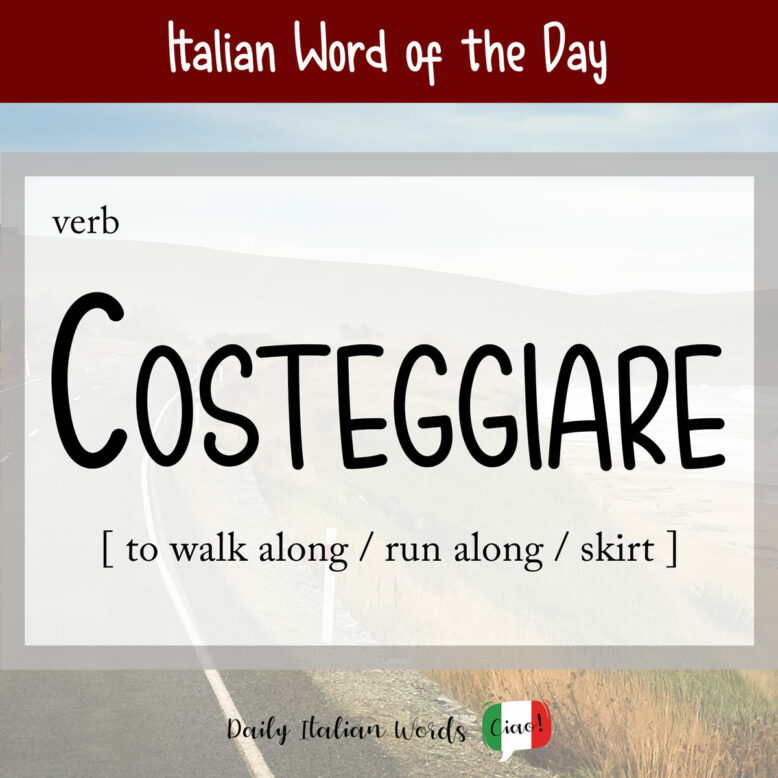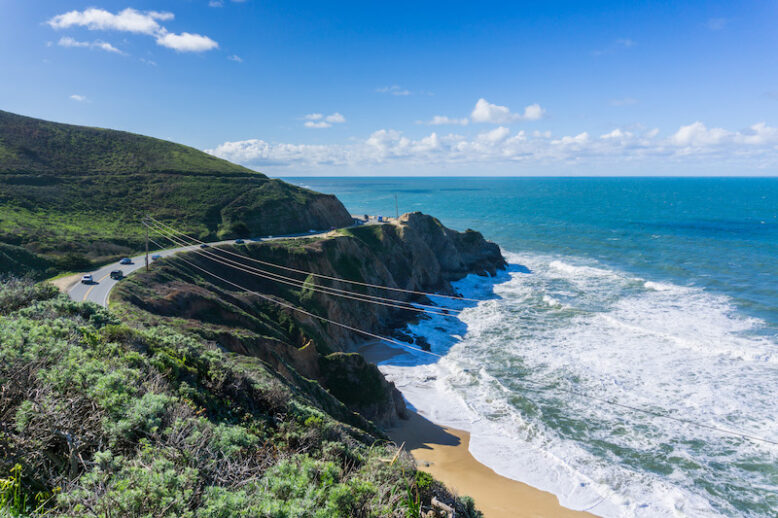Today we’ll be looking at a verb that was suggested by one of the members in our fantastic Facebook community: costeggiare.
costeggiare

Costeggiare is a regular -are verb, so it can be conjugated in the following manner in the present tense:
(io) costeggio
(tu) costeggi
(lui) costeggia
(lei) costeggia
(Lei) costeggia
(noi) costeggiamo
(voi) costeggiate
(loro) costeggiano
As you may have guessed just by looking at the verb, costeggiare derives from the noun costa meaning coast. Indeed, the original meaning of this verb was to sail along the coast, and it is still used in this sense in nautical terms.
Abbiamo costeggiato l’isola fino ad arrivare al porto principale.
We sailed around the island until we reached the main port.
However, the meaning has since expanded to denote the general act of moving along or around something, as opposed to going through or across it.
Ho costeggiato il muro del giardino finché non ho visto il cancello.
I walked along / skirted the garden wall until I saw the gate.

It can be used to describe, not only people or vehicles in movement, but also inanimate things, such as roads or rivers, that extend for great distances, wrapping themselves around other objects.
La strada costeggiava il fiume.
The road ran alongside the river.
Il fiume era costeggiato da una strada.
The river was flanked by a road.

In agricultural terms, it also means to level with a plow, but this usage is quite uncommon.
Heather Broster is a graduate with honours in linguistics from the University of Western Ontario. She is an aspiring polyglot, proficient in English and Italian, as well as Japanese, Welsh, and French to varying degrees of fluency. Originally from Toronto, Heather has resided in various countries, notably Italy for a period of six years. Her primary focus lies in the fields of language acquisition, education, and bilingual instruction.


